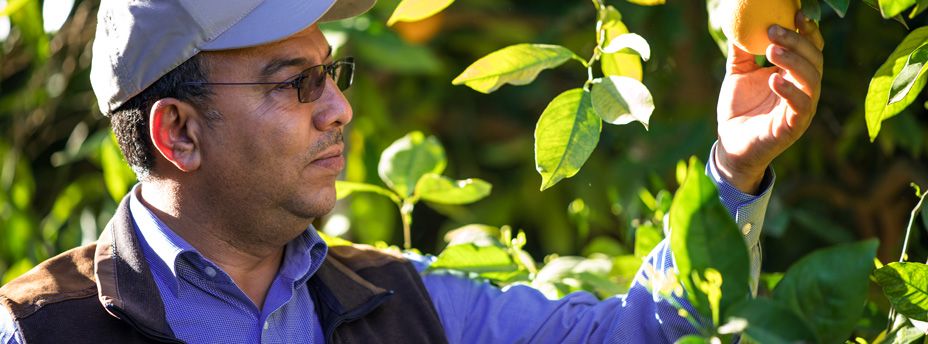As Youssef Jebha walks past the lush citrus groves surrounding the town of Guerdane in central Morocco, he remembers the long period when the land was bare. Until a few years ago, the region’s severe water shortages laid waste to properties and drove residents from their homes and orchards. “Many people, especially the farmers, left the region because they couldn’t make a living,” says Jebha, who heads the Guerdane farmers’ cooperative.
The problem? Citrus farming is water-intensive, and generations of farmers had been depleting vital groundwater faster than nature could replace it. As local aquifers dried up, farmers were forced to dig wells up to 600 feet deep, reducing groundwater levels by more than three meters every year. As thriving farms withered, residents and workers abandoned over 3,000 hectares of land. It was an environmental, social, and economic disaster—because in the Guerdane area alone, more than 100,000 people earn their living either directly or indirectly from citrus farming.
“The situation was catastrophic,” says Ahmed El Bouari, Director of Morocco’s Ministry of Agriculture. “Farmers were digging their wells deeper, but the situation was not improving. The loss of production and jobs resulted in social and environmental distress.”
To confront the growing environmental damage and help farmers achieve sustainable growth, Moroccan officials hired IFC in 2004 to design the world’s first irrigation public-private partnership (PPP). IFC structured a project introducing drip irrigation that brought nearly $40 million in private investment into the region and created hundreds of local jobs.
The project transformed both the land and the economy: by 2009, farmers could drip irrigate 10,000 hectares of land without worrying about droughts, or further depleting their groundwater. And in 2017, Moroccan citrus production reached 2 million tons—82 percent more than before the project began.
Irrigation Nourishes a Community
Guerdane is the heart of Morocco’s citrus industry: the region produces half of the country’s citrus fruit and is a major export crop. Agriculture generates 40 percent of jobs nationwide and is one of Morocco’s core sectors. But that’s just part of the reason Guerdane’s transformation is so important. The irrigation project has done more than just restore local farms to their former fertile glory—it has revitalized a community.
Producing more and better fruit generated profits that allowed the Guerdane cooperative to invest $13.5 million to upgrade its citrus processing factory. This boosted efficiency, increased turnover from $5 million to $25 million per year, and led to the creation of 350 new jobs.
The ripple effect of this single irrigation PPP helped the Guerdane cooperative establish the El Guerdane Foundation, which is training young farmers in the region. It provides them with the technical and agricultural skills they need to maintain their farming heritage and manage future climate challenges. The Foundation also used its increased revenue to build an elementary school for the region’s children.
Planting a New Solution
Amensouss, Morocco’s first domestic infrastructure operator for irrigation projects, won the contract to supply 45 million cubic meters of surface water to nearly 2,000 Guerdane farms from a dam 90 kilometers away. The transaction is structured as a 30-year concession to build, co-finance, and manage an irrigation network to channel water from the dam complex and distribute it to farmers in Guerdane. At the end of the concession, the infrastructure will be returned to the government.
“In the past, we suffered a lot economically,” says Ahmed Bounit of the El Guerdane Foundation. “We are now on solid footing thanks to this project, and we are in a position to make a positive, lasting impact on society.”
Read more about IFC’s work with PPPs at www.ifc.org/ppp, and about agribusiness at www.ifc.org/agribusiness
Published in April 2018.
